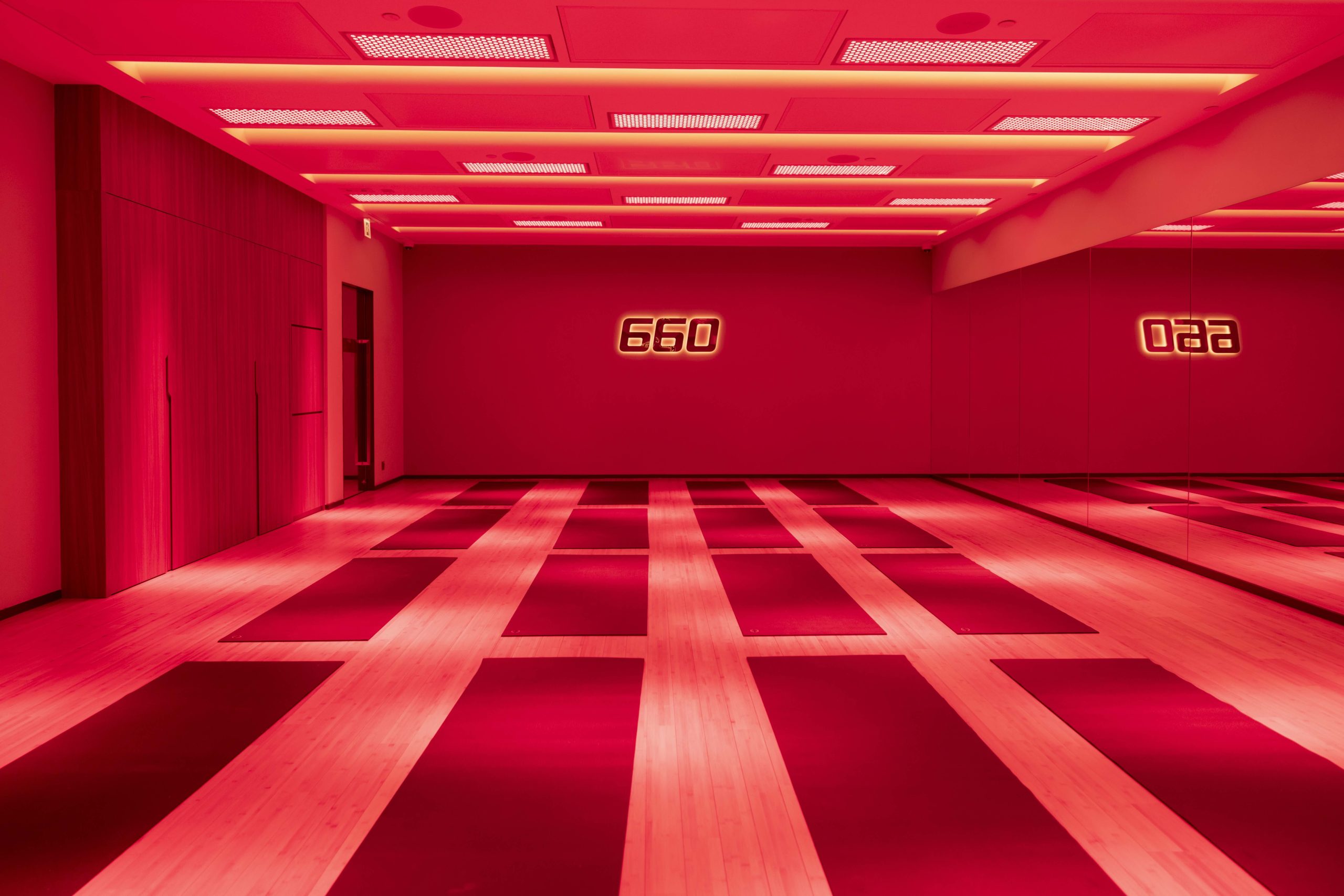Three of the city’s young stars – Oliver Chan, Jill Leung and Philip Yung – took centre stage at this year’s Far East Film Festival in Udine, Italy, showcasing the diversity that’s driving the local industry forward. Ruby Power and Daryl Cheong report from the annual Far East Film Festival Campus initiative
‘Why do women get married and have children?’
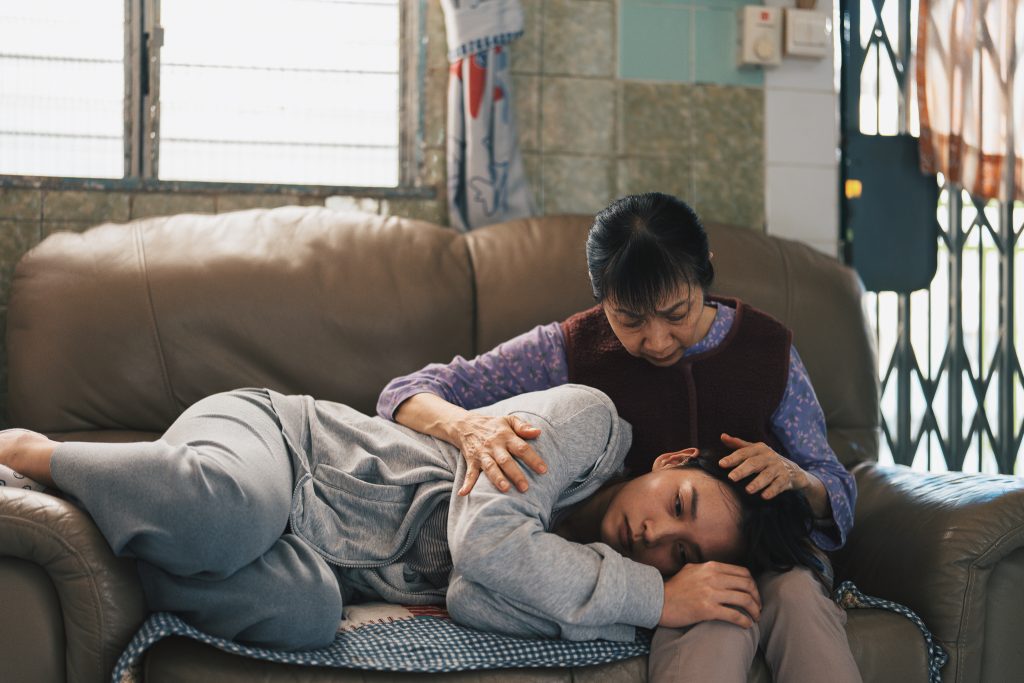
So goes the disarming question posed by a struggling new mother, Jing (Hedwig Tam), in Oliver Chan’s second feature, “Montages” of a “Modern Motherhood.” As the Hong Kong director sits down with us on a muggy afternoon in Udine, the question still lingers.
“Montages” has brought Chan to the 27th Far East Film Festival (FEFF) in this corner of northern Italy, where her film has drawn attention for its uncowed attention to the overlooked and the unspeakable dramas of motherhood. In a festival programme ranging from Japanese “yokai” monsters to Vietnamese ghostbusters, a quiet tragedy of sore breasts and broken milk pumps is still the most shocking thing on-screen.
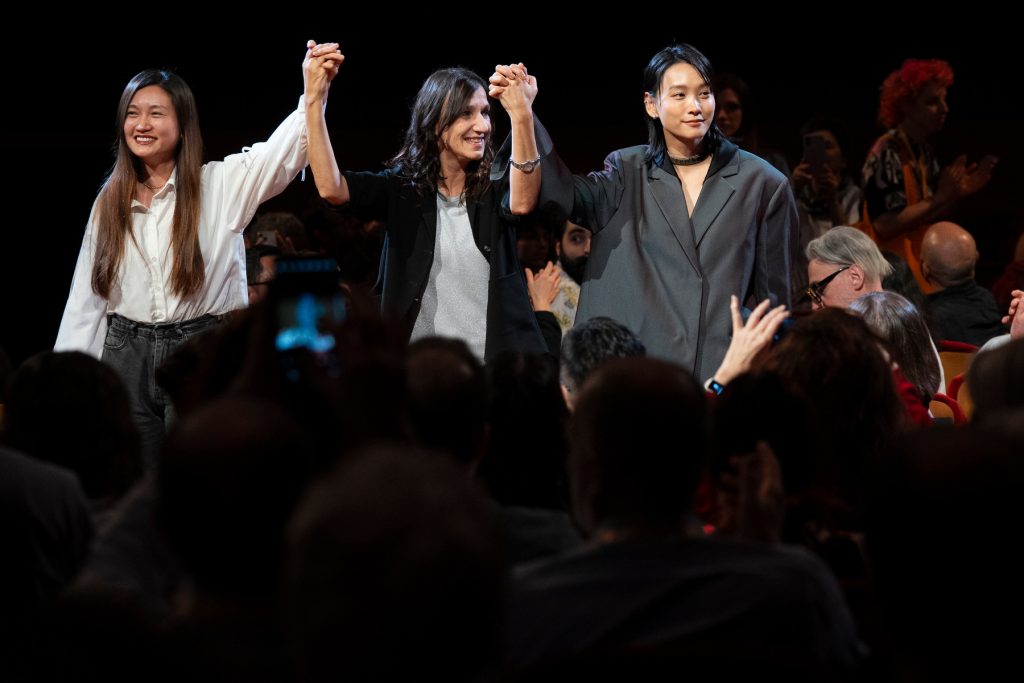
The attention surrounding the film is nothing new for Chan, whose first feature, the domestic drama “Still Human,” saw her crowned Best New Director at the 2019 Hong Kong Film Awards. Continuing her focus on domestic life, Chan’s “thriller for women” is a subtly devastating drama about the existential narrowing of a new mother’s life.
We watch Jing’s world fall away under the pressures of motherhood, as her ordinary circumstances – a fussy newborn, clueless husband and poorly paid job – become unbearably claustrophobic. Chan witnesses these ostensibly mundane struggles with a focus that is at once tender and terrifying – and she builds her film around a standout performance from Tam that saw her pick up a nomination for Best Actress at the recent Hong Kong Film Awards.
“Montages” provoked a vital conversation at FEFF on the loneliness of motherhood – as it has across Hong Kong since its release in April, and as it did after making its world premiere in competition at the Busan International Film Festival last October. It’s a subject Chan is eager to discuss.
What conversation did you want to start with “Montages” of a “Modern Motherhood?”
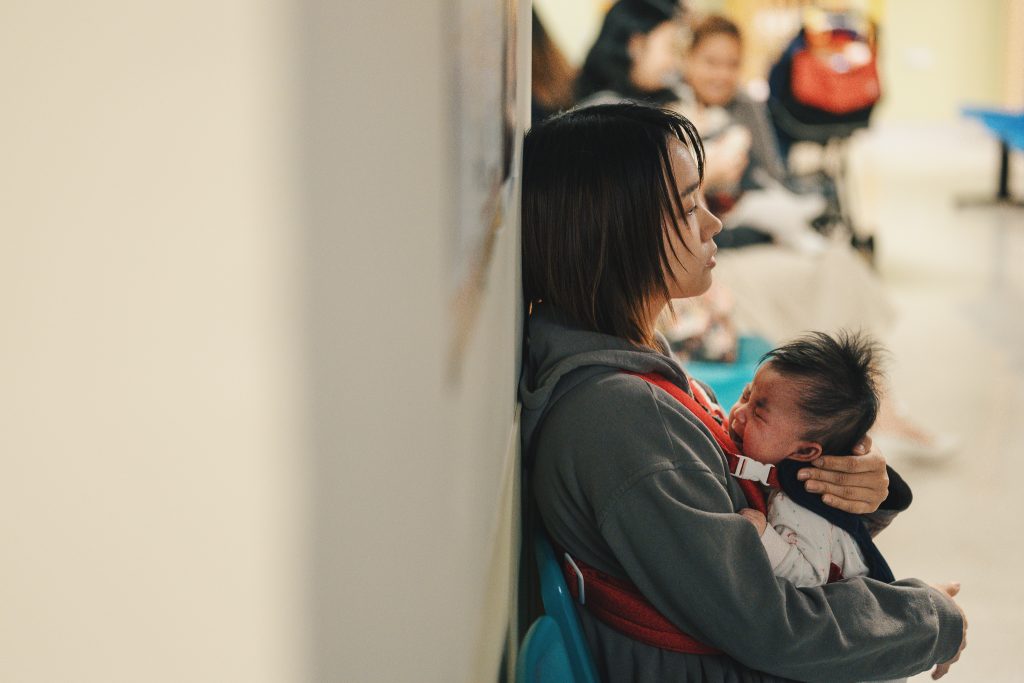
I wanted at least to break the taboo of not mentioning postpartum depression. Because a lot of us, in Hong Kong, in Asian culture and maybe even internationally, don’t want to talk about it, and lots of mothers who are struggling don’t want to admit that they’re struggling, because they don’t want to seem like bad mothers.
I want the film to normalise that it’s okay not to be aperfect mom. And of course, I want people to see that gender stereotypes are leading women to really struggle, because we have so many options nowadays, and women have aspirations in so many areas. It’s time for men to also step up and take on responsibilities.
How do you feel about the debate that your film has provoked?
There’s definitely a lot of debate in Hong Kong; there are people who do not understand the female character, her struggles and her decisions. But I realised that when people raise questions, there are always lots of others who really understood it, and who will come out and explain. It’s a mission accomplished, when people discuss it. I think that all mothers are a little bit similar and a little bit different in their experiences of motherhood, and it’s great that they got the chance to talk about it.
You say that mothers have so much more choice nowadays. Do you think the mother in the film’s problems are modern problems?
Nowadays, we have so many so-called professionals studying how you should raise a kid. There are so many choices, from how you fertilise your egg, how you give birth, then do you feed them breast milk, do you do sleep training? So many theories, and there’s always something better, or something not so good. There’s a lot of confusion, and it takes a lot of time just to read everything and then make a decision. If it’s only the women taking this on, it’s difficult, and not to mention all that, the modern problem is that we go to work. We’re educated, and a lot of us had a career before we got pregnant. Why are we still being penalised because of motherhood? Being pregnant, your career path has to, temporarily or long-term, be postponed or stopped to take care of the baby. That’s also a struggle.
So nowadays in some sense you feel, as a woman and as a mother, that you have to be perfect in every way. If you want to be a good woman, you have to have a decent education, have a good job, get promoted, have beautiful kids, get your body back in perfect shape. You’re a superhero.
But why should we do so many things? That’s my question. They want you to work like you’re not a mother, but they want you to take care of your children like a full-time mother. So you’re working two shifts, and you’re just one person. It’s so demanding nowadays.
There’s so much about breastfeeding and about the body in “Montages,” and it’s still rare to see that on screen. How do you tackle making a film about taboo or underrepresented topics?
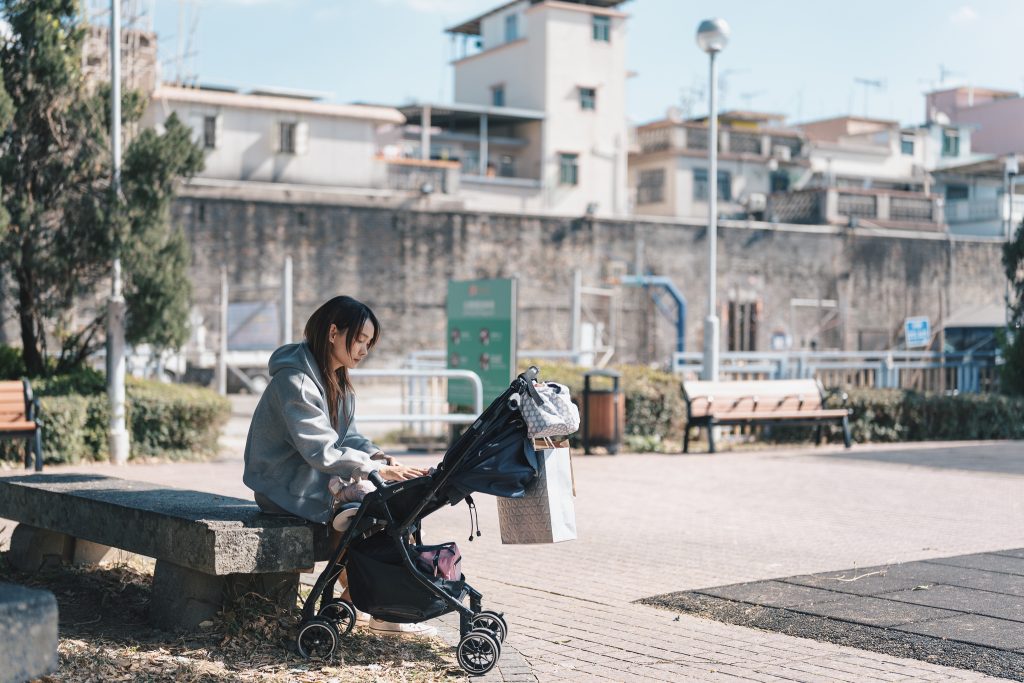
You know, the ironic part is that when I wanted to find prosthetics for use in the film, I tried to find photos [of a postpartum body] on the Internet, but the images weren’t available, because they were nude.
What about the women who are considering motherhood and they’ll never know; they can only hear terrible stories about how the breasts sag? Where are the images? So I wanted to show everything. I wanted to show all the real, brutal facts that you might not actually experience. But at least you’ll know. And then you can afford it – maybe you don’t want your breasts to sag, so you can decide whether to breastfeed or not, and so on. Instead of having it happen and thinking, why did nobody ever tell me?
The films you made have been set in domestic life in Hong Kong. What do you feel the future is like for young filmmakers in Hong Kong, and what are the challenges?
I think it’s difficult everywhere. The film industry is facing a lot of challenges because of streaming, because of the changes in cinemagoing habits during Covid. Now you have a really nice TV at home that replaces the cinema. Everywhere I visit is facing these problems.
In Hong Kong, another problem is that our local market is really small. So basically, if you’re not working on the biggest scale, or not on the more extreme topics, you can’t really recover your costs. Our market is not big enough for indies that can recover their costs just in the local market; we have to travel. It’s very challenging, because our films are indies – they aren’t really popular, and it’s difficult to sell overseas.
We don’t have superstars, like Korean stars, Japanese stars or Hollywood stars, that could sell films if they were willing to do some indie or arthouse work. In Hong Kong, we don’t have that newer generation of stars, and that could be a problem.
So, what’s next? Do you want to keep making films about Hong Kong, keep making them about women?
I’m open to all of this. I might not always make films about Hong Kong, I might not always make films from a female perspective. But I would always want to put something in there about Hong Kong. I would always want to make sure I have female characters who are human, instead of just a prop. I might try co-production with other countries, but I always want something in the soul, in the spirit of the film, to be something that I really treasure.
Also see: #review: Is Disney’s Lilo & Stitch remake a good watch?




